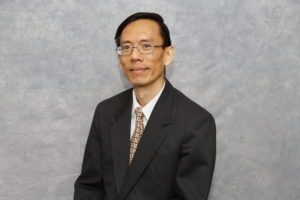Interview by Sarah Gluck and Ann Smith

Dr. Hon Yuen, Professor and Director of Research, Department of Occupational Therapy, University of Alabama Birmingham
When did you first want to become involved in science?
My background is occupational therapy – I was trained as an occupational therapist in Australia. I kind of loved to do research, even started when I was an undergraduate student in occupational therapy program. Of course, I didn’t have enough knowledge in doing research [at that time].
My thoughts were that research would be after I receive my PhD, which would help me to know more about research and methodology. My PhD covered evaluations and methodology and then that helped me to understand a little bit more about the process of doing research. That’s the starting point. Before my PhD I was involved with research, but it was not kind of “in that level,” compared to after I received my PhD.
An undergraduate program is kind of like – you learn the knowledge. You’re not going to know what to produce. Students absorb, like a sponge, you absorb as much of what the teacher tells you, and your ability at that level is to observe. To me, research is to do something, or produce something
When did you first realize the importance of mentorship?
I think when I was in my master program, I had a very good mentor and he helped me, so that I could see how mentorship works. After that, I worked as an occupational therapist for a while and then I became a teacher at a University. I think I just kind of learned it from him when I was in my master program – I wanted to become like him. That’s why after a few years, I became an instructor. Even at that time I didn’t have a PhD. And yet, I still wanted to teach and pass my limited amount of knowledge to another person and students in the undergraduate program.
I think in terms of being a mentor and mentee – it’s a two-way street. In a sense that I would like to share my experience with my mentee, hopefully my “smooth experience,” or sometimes it can be a failure experience, so that he or she can learn from it without going through it.
How long have you been involved with NRMN?
I started coaching with NRMN in May 2017. I had four trainees, and then in October I had another five trainees – each for about six months. Some of them longer, if they still wanted to maintain contact with me and with the other trainees. We continue until the day they have a successful grant.
What are your thoughts on the programs at NRMN, including your involvement with SETH?
I enjoy it, really very much. I enjoy it, and actually it’s an honor to see some of the success of my training, when trainees receive grants, even if I may not have much to do with it. It’s a kind of collaborative process between me and the trainee – not just me, but it is a group process with the other trainees, as well. Everybody kind of chips in in terms of feedback for each other. Each trainee will receive four different sets of feedback from me and other trainees. I’m very thrilled to see one of the trainees receive a grant from a [private foundation], and another also received an internal grant from their institution. I’m as happy as they are that they received the grant, honestly. Even though I may not have much to do with it, at least I am a supporter or cheerleader for them.
The opportunity to be [a part of] NRMN, and to see all those next generations researchers grow – I’m very happy with that. That’s an intrinsic motivation, to see how they become successful. The next generation of researchers. I think that’s something that nothing can replace, honestly.